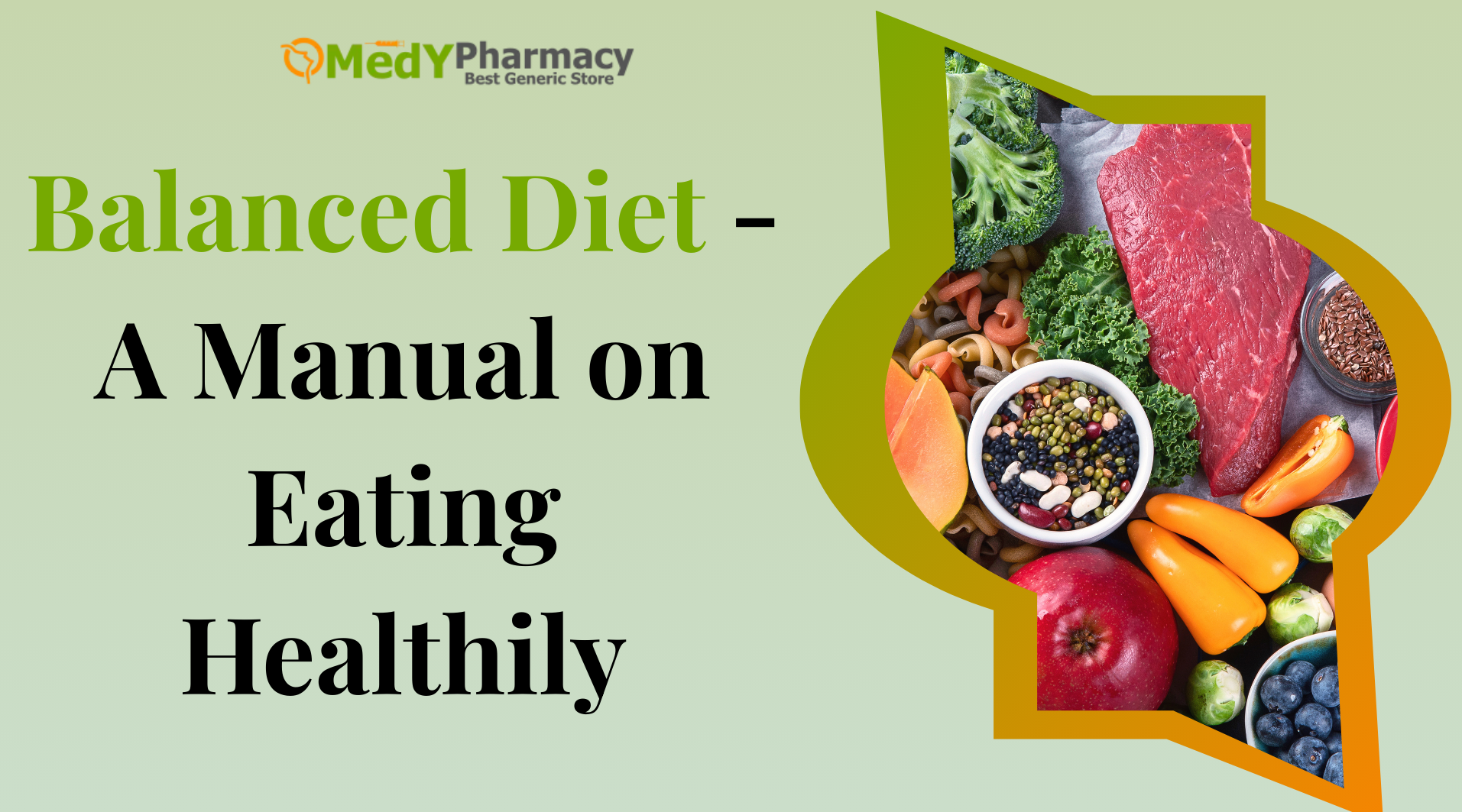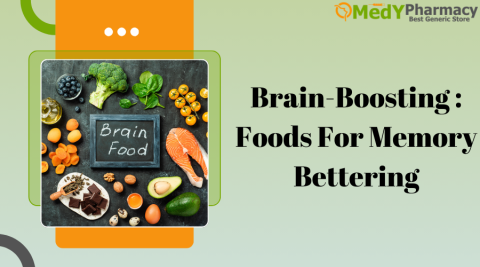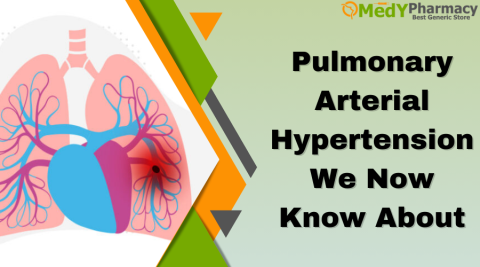Introduction:
This is consuming the appropriate kinds and quantities of food to provide your body with the nutrients it requires to maintain good health. It strengthens your immune system, promotes healthy bodily growth, and provides you with the energy you need to remain focused and active.
A variety of food categories are included in this. These include vitamins and minerals from fruits and vegetables, proteins for development and repair, lipids for brain and cell health, and carbs for energy.
Eating fruits and vegetables should be a daily habit. They are a great source of fibre, iron, and vitamin C. To ensure your body is getting all the nutrients it needs, try to consume foods that are green, red, orange, and yellow.
Additionally significant are dairy items, including cheese, yoghurt, and milk. They supply calcium that aids in the development of healthy teeth and bones. If dairy is out of your price range, plant-based substitutes like soy or almond milk are available.
Water consumption is another crucial component of a well-balanced diet. Water preserves the health of your skin and organs, aids in food digestion, and transports nutrients throughout your body. Restrict your intake of sugary drinks and sugary or salty foods.
- Fresh Fruits
- Fresh Vegetables
- Whole Grains
- Legumes
- Nuts
- Lean Proteins
It’s all about moderation and diversity. You can maintain your health, strength, and vitality every day by eating a variety of nutritious meals and drinking lots of water.
What is a balanced diet?
This has the ideal number of calories for your body’s composition as well as the proper ratio of vitamins, minerals, and other vital components.
Consuming whole grains, dairy products, and healthy fats like olive oil and almonds also keeps your body in good condition.
It’s also crucial to drink lots of water. Along with aiding in digestion, circulation, and temperature regulation, it keeps your body hydrated.
This covers a variety of meals in appropriate amounts. Your body stays active, your mind stays bright, and your general health improves when you eat healthily every day.
What Advantages Does Eating a Balanced Diet Offer?
This gives your body the proteins and carbs it needs to make energy all day long. This makes you feel less worn out and more energised.
The immune system is strengthened by foods like fruits and vegetables that are high in vitamins and minerals. This improves your body’s ability to fight against infections and diseases.
This gives the proper ratios of nutrients, which helps control body weight. Avoiding overeating and assisting in maintaining a healthy weight lowers the risk of obesity.
For healthy bones, nutrients including calcium, vitamin D, and magnesium are necessary. In addition to lowering the risk of diseases like osteoporosis, a diet high in essential minerals helps maintain healthy bones and teeth.
Brain function and mood are positively impacted by eating meals high in nutrients. Healthy fats, vitamins, and minerals help maintain cognitive function and may lower the chance of mental health issues, including anxiety and depression.
Chronic disorders like high blood pressure, diabetes, and heart disease can be prevented with a well-balanced diet rich in fibre, good fats, and antioxidants.
This is among the most crucial elements in fostering general wellness. It lowers the risk of chronic diseases, improves mental health, strengthens the immune system, and makes you feel better.
List the 5 Essential Nutrients for a Well-Balanced Diet
Each of the 5 vital elements that support each bodily function must be present in a well-balanced diet. Vitamins, minerals, proteins, lipids, and carbs are examples of these nutrients.
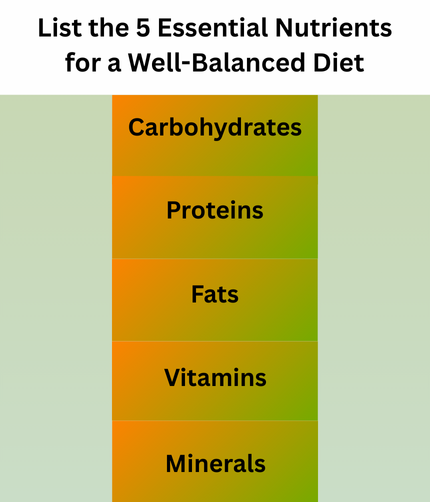
- Carbohydrates
One of the most important nutrients for maintaining our bodies’ health and vitality is carbohydrates. As the body’s main energy source, they are particularly crucial for the brain and muscles during exercise.
Fibre, which aids in digestion and prolongs feelings of fullness, is also included in them.
In addition to increasing the risk of diabetes and heart disease, eating too many harmful carbohydrates, especially from sugary foods and beverages, can cause weight gain. Choosing healthy sources of carbohydrates is crucial because of this.
Selecting the correct type, such as fruits, vegetables, and whole grains, may keep you healthy, focused, and invigorated.
- Proteins
One of the most important nutrients for maintaining the strength and health of our bodies is protein.
Animal-based foods, including eggs, milk, poultry, fish, and meat, are good sources of protein. For vegetarians and vegans, there are other plant-based choices such as beans, lentils, tofu, soy products, and nuts.
Eating a range of meals high in protein is crucial to ensuring your body receives all the key amino acids it requires. To have a full protein intake, combine plant and animal sources.
Growth, repair, and general health all depend on this. You may maintain your strength, energy, and activity level by including adequate protein in your regular meals.
- Fats
Although fats are sometimes seen negatively, they are an essential component of a balanced diet. They are necessary for brain and cell health, give off energy, and aid in the body’s absorption of certain vitamins.
Unsaturated fats are a type of healthy fat that may be found in foods like avocados, nuts, seeds, olive oil, and seafood. These fats have the potential to promote heart health and reduce harmful cholesterol.
Despite being necessary, fats should only be consumed in small amounts. Consuming excessive amounts of fats, even good fats, might result in weight gain since they are high in calories.
These are an essential component of a balanced diet. Maintaining heart health, energy, and strength may be achieved by selecting good fats and avoiding bad ones.
- Vitamins
They aid in the maintenance of several essential functions, including immunity, development, and healing. Vitamin deficiency impairs our bodies’ ability to function at their peak.
Despite their importance, vitamins should be obtained organically from food rather than only through supplements.
For health and well-being, these are essential. Although they may be required in small quantities, they have a significant effect on your health, so make sure that every meal you eat is full of foods high in vitamins.
- Minerals
One of the most important elements for sustaining health is minerals. Minerals, as opposed to vitamins, are inorganic compounds that are necessary for your body to sustain your heart, muscles, and nerves, as well as for the development of bones and teeth.
Macro minerals and trace minerals are the two categories of minerals. When it comes to health, trace minerals like iron, zinc, and iodine are just as vital as macro-minerals like calcium, potassium, and magnesium, which are needed in lesser amounts.
Although minerals are essential, equilibrium must be maintained. While insufficient intake of some minerals, such as sodium (salt), can result in shortages that impair body functions, excessive intake of the same minerals can raise blood pressure.
Each is essential to preserving good health in its way. The body uses carbohydrates as its main energy source, and the brain and muscles particularly need them. Particularly in children and adolescents, proteins are essential for development, immune system support, and tissue growth and repair.
For instance, iron and calcium promote blood and bone health, while vitamin C strengthens immunity. All these vital elements are guaranteed to be received by the body if the diet consists of a range of foods such as fruits, vegetables, whole grains, dairy, meat, nuts, and legumes.
Why Is It Important to Eat a Balanced Diet?
A balanced diet is necessary to keep one’s health and well-being in check. It promotes all facets of your physical and emotional well-being and gives your body the nourishment it needs to perform correctly.
A healthy diet is particularly crucial during times of development, such as childhood, adolescence, and pregnancy.
The vital nutrients required to promote cognitive and emotional growth, as well as the development of healthy bones, muscles, and organs, are provided by a balanced diet.
This helps control weight by giving the proper amounts of nutrients without being very calorically dense.
Consuming a range of nutritious meals instead of processed or sugary ones will help you keep your weight in check and lower your risk of obesity and related diseases like diabetes and heart disease.
Chronic disorders, including diabetes, high blood pressure, and cardiovascular disease, can be prevented by consuming a balanced diet regularly.
To shield the body from oxidative stress and inflammation, which are factors in many disorders, nutrients, including fibre, antioxidants, and healthy fats, are crucial.
This is essential for maintaining the proper functioning of your body, fostering development and growth, increasing immunity, controlling weight, and fostering mental wellness.
If we don’t consume a balanced diet, what happens?
Over time, a variety of health problems and consequences may arise from not eating a balanced diet.
A poor diet can weaken the immune system, increasing the body’s vulnerability to diseases and infections. The effective functioning of the immune system depends on essential vitamins and minerals, including iron, zinc, and vitamin C.
The control of mood and brain function is significantly influenced by nutrition. A bad diet can cause mental health problems like anxiety, sadness, and difficulty focusing. Deficits in B vitamins, omega-3 fatty acids, and other nutrients, for instance, have been connected to mood problems.
This can have a severe detrimental effect on the body, resulting in chronic illnesses, weight issues, poor mental and physical health, weaker immunity, and a generally lower quality of life. To avoid these issues and preserve excellent health, it is essential to eat a range of nutrient-rich meals.
Foods to Limit or Steer Clear Of
- Foods that are heavily processed
- Grain refinements
- Refined sugars
- Sweetened beverages
- Meats that are red and processed
- Fats, both Trans and saturated
- High-glycemic foods
Additionally, you should consume less salt and extra sugar. Excessive salt can raise blood pressure and the risk of heart disease and stroke, whereas excessive sugar can raise the risk of obesity and tooth decay.
Alcoholic drinks have an impact on insulin, triglycerides, and cholesterol levels. Weight gain, high blood pressure, liver inflammation or scarring, and even some cancers can all be made more likely by them.
How Does A Balanced Diet Include Water?
Water is essential to a balanced diet since it supports several body processes and promotes general health.
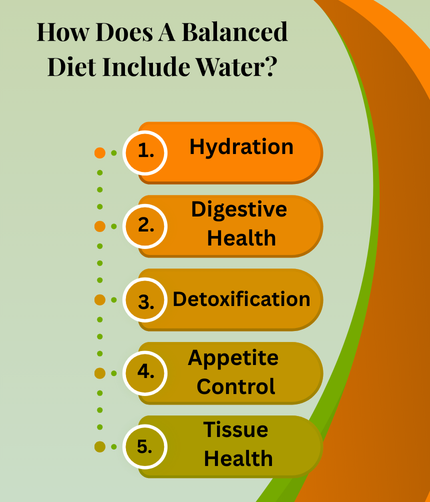
- Hydration
Since water comprises approximately 60% of the human body, hydration is crucial for general health. It supports the maintenance of essential biological processes, such as waste removal, nutrition delivery, and temperature regulation.
Your body will function more effectively if you drink enough water, which will keep you alert and focused all day.
Water is also essential for digestion. It facilitates food digestion, which improves the body’s absorption of nutrients. Insufficient water intake might cause digestion to proceed sluggishly, resulting in bloating and constipation.
Preventing stomach pain and promoting easy bowel movements are two benefits of being hydrated. Dehydration can exacerbate the look of wrinkles and cause dry, irritated skin.
- Digestive Health
The correct breakdown and absorption of the nutrients in our meals depend on the health of our digestive systems. Because it facilitates the dissolution and passage of nutrients via the digestive system, water is essential to this process.
Staying properly hydrated guarantees that the body’s enzymes and acids break down food efficiently, which facilitates the body’s absorption of vital vitamins, minerals, and other nutrients.
By encouraging smoother bowel movements, drinking enough water can also help the digestive system work more effectively.
By softening stools, water lowers the chance of constipation and digestive pain. Regular and healthy bowel function is essential for general health and is supported by enough fluid consumption.
- Detoxification
The body gets rid of waste and poisons through a process called detoxification. Water plays a vital role in this process by assisting the kidneys and urinary system in eliminating these dangerous chemicals.
Your body can filter and eliminate toxins more effectively when you are properly hydrated, which eases the strain on organs like the kidneys and liver.
Enough water consumption helps the body’s natural detoxification processes, which guarantees that waste materials are effectively removed.
This procedure aids in the prevention of dangerous material accumulation that can cause disease or pain. Maintaining healthy digestive system function and aiding in detoxification are two further benefits of enough hydration.
- Appetite Control
Water is crucial for controlling hunger, and controlling appetite is a key component of eating a balanced diet. We frequently mistake thirst for hunger, which causes us to overindulge in snacks. By consuming water before meals, you can reduce your appetite, feel fuller, and be less likely to overeat.
Water also helps with digestion, which can help you feel full after eating. Drinking enough water helps your body metabolize meals more efficiently, which helps to keep blood sugar levels in check and avoid unexpected cravings or hunger pains.
You may keep hydrated and avoid the temptation to eat when you’re not truly hungry by including a sufficient amount of water in your daily routine. You can better regulate your appetite and choose healthier foods if you drink water often.
- Tissue Health
Water is necessary for the body’s tissues to remain healthy. It keeps tissues moisturized and in good working order, including muscles, joints, and skin. In particular, skin attractiveness and joint lubrication depend on proper hydration, which promotes suppleness and regeneration and maintains cell health.
By keeping the skin moisturized, dryness, irritation, and early aging may be avoided, and the skin can stay robust, supple, and smooth. By keeping muscles and joints lubricated, water lowers the chance of soreness, irritation, or stiffness during exercise.
Insufficient water intake can cause tissues to become dehydrated, which can result in drooping, dryness, or heightened susceptibility to damage. Drinking adequate water on a regular basis is essential for preserving the functionality and health of all bodily tissues, as well as for fostering comfort and vigor.
Increased Awareness of Eating
Most of us occasionally eat a lot of food without truly tasting it. It can be challenging to break bad habits, but you need to learn to be more conscious of what you put in your mouth if you want to control what you eat.
Enjoying your meals and taking your time is beneficial. To enjoy your meals in a distraction-free, quiet setting, switch off the TV and take a seat.
Keep in mind that the initial bites are always the best. Prioritize the food’s quality over its quantity.
Eating slowly allows your stomach to tell your brain when you are pleasantly full. Sip water, put down your fork between bites, and converse with others while eating.
Why Is Portion Management Crucial To Eating A Healthy, Balanced Diet?
Because portion control helps limit calorie consumption, it is crucial for eating a healthy, balanced diet. By controlling portion sizes, you may prevent overindulging in unhealthy meals and overeating, which can result in weight gain and other health problems like heart disease or high cholesterol.
You can make sure you’re getting the appropriate quantities of nutrients from all dietary categories, including fats, proteins, and carbs, by practicing portion management.
Without consuming too much of any one nutrient, it enables you to consume a range of meals in proportionate amounts, enabling you to achieve your nutritional needs.
Moreover, mindful eating is promoted by portion control, which aids in the recognition of hunger and fullness signals.
This encourages long-term health and well-being, leads to better eating habits, and lessens the desire to overindulge in snacks.
Foods Not to Include in a Healthy, Balanced Diet
Any diet that has all of the vital components your body needs for optimum operation—carbohydrates, proteins, fats, vitamins, and minerals—is considered healthy and balanced. To maintain a balanced diet and lower the risk of chronic illnesses, several foods should be avoided or consumed in moderation, even if many foods promote health.
Frequent use raises the risk of heart disease, diabetes, and other metabolic diseases and can cause weight gain.
Sugary beverages such as energy drinks, sodas, and sweetened teas are among the main causes of the modern diet’s high sugar intake. Without any nutritional benefit, these drinks are laden with added sweets.
White bread, spaghetti, and pastries manufactured with refined carbohydrates are devoid of fiber and vital nutrients. Rapid blood sugar rises from these meals eventually result in insulin resistance.
Fried food may be tasty, but it contains a lot of harmful fat that should be avoided or consumed in moderation for heart health.
Artificial sweeteners have been linked in some studies to gastrointestinal health issues, increased appetites for sweet foods, and metabolic disruption. It is advisable to minimize or stay away from meals that contain artificial sweeteners and instead concentrate on using natural sweeteners like fruit or honey.
Cakes, ice cream, and other sweets may be delicious, but they are frequently loaded with harmful fats, added sugars, and empty calories.
It is preferable to use healthier fats that provide advantageous monounsaturated fats, such avocado, nut butters, or olive oil.
Water retention, bloating, and other health problems can be caused by an excessively high salt diet, which also strains the kidneys. A healthy alternative is to cook at home using whole, fresh ingredients flavored with herbs and spices.
Long-term health achievement and maintenance depend on eating a balanced diet, controlling portion sizes, and engaging in regular exercise.
The Value of Eating a Balanced Diet
Maintaining excellent health and general well-being requires eating a balanced diet. It gives your body all the vital nutrients—proteins, lipids, minerals, vitamins, and carbohydrates—that it needs to perform at its best.
- Heart Disease
- Cancer
- Stroke
- Type 2 Diabetes
Your body can work more effectively when your food is balanced, which will increase your energy levels, strengthen your immune system, and encourage normal growth and development.
A balanced diet makes sure you get the proper amount of calories from each food category, which helps you maintain a healthy weight.
It lowers the risk of chronic illnesses, including diabetes, heart disease, and some types of cancer. Including a range of nutrient-dense foods in your diet helps your body fight infections, cope with stress, and heal from injuries or illnesses.
Eating meals high in vital nutrients can help control the symptoms of anxiety or depression, increase attention, and enhance cognitive function. All things considered, a healthy diet is essential for mental and physical well-being and promotes a long, active, and satisfying life.
Why Is It Crucial To Have A Balanced Diet That Includes Both Fruits And Vegetables?
Being rich in vital nutrients that promote general health and well-being, fruits and vegetables are an important part of a balanced diet for several reasons.
Fruits like oranges and strawberries have vitamin C, which boosts immunity, while vegetables like potatoes and spinach include potassium, which helps keep blood pressure in check.
These illnesses are largely caused by oxidative stress and inflammation, which are combated by the antioxidants and phytochemicals found in fruits and vegetables.
In addition to promoting a healthy gut microbiome, fiber helps control bowel movements and avoid constipation. Foods high in fiber also help lower appetite and manage weight by making you feel fuller for longer.
Your body will obtain the vitamins, minerals, and fiber it needs to perform at its best if you include a variety of fruits and vegetables in your daily diet. This will also support long-term health and help prevent disease.
What Is One Easy Habit To Start Eating Better?
A simple way to start eating better is to include one serving of fruit or vegetables with each meal. Without needing significant adjustments to your daily routine, this easy modification increases your intake of vital minerals, fiber, and antioxidants.
Whether you include spinach in your smoothie in the morning, add some vegetables to your lunch salad, or serve a side of fruit with supper, this practice guarantees that you’re consuming more nutrient-dense meals all day long. It’s simple to make better food choices and enhance your nutrition.
Including this practice in your daily routine eliminates uncertainty and the anxiety associated with choosing what to eat.
Planning and preparation can give you greater control over your diet, which can result in better nutrition overall, increased energy, and a healthier way of living.
Consuming foods from the five major groups is necessary for eating a balanced diet. Please visit our Medypharmacy websites.
As new nutrition facts are discovered by scientists, dietary recommendations evolve throughout time.
Seeking advice from a trained nutritionist is also a smart move. They can guarantee that you don’t have any nutritional gaps and assist in developing a strategy that suits you.







